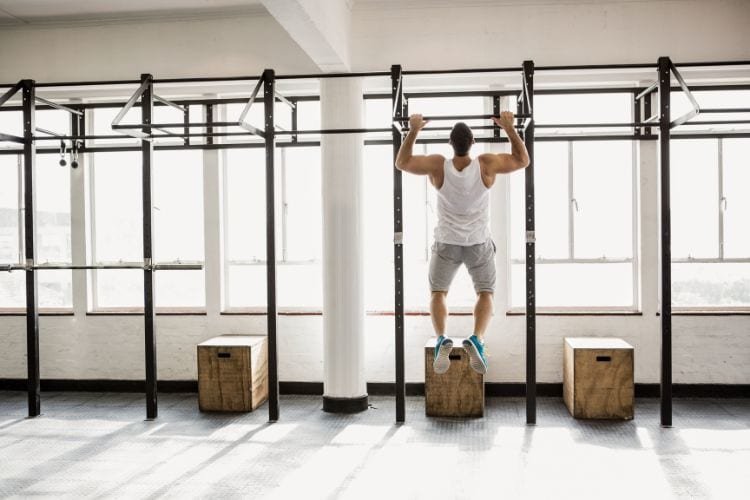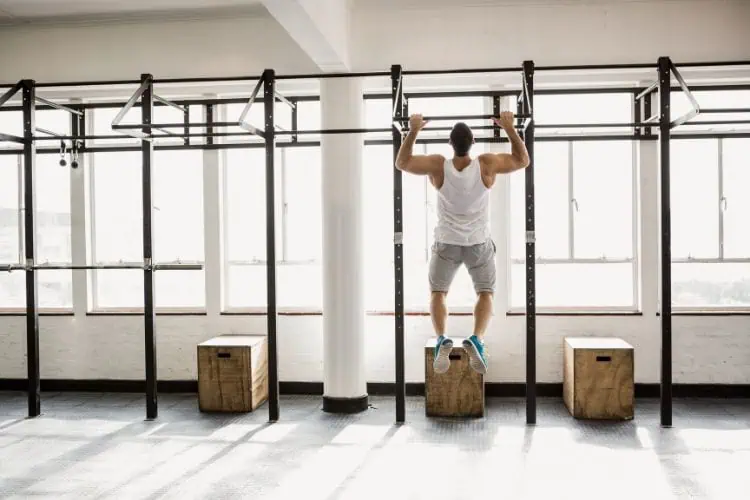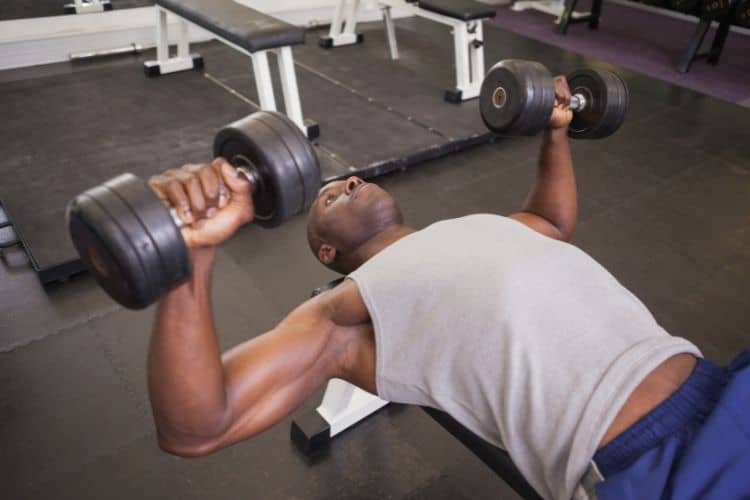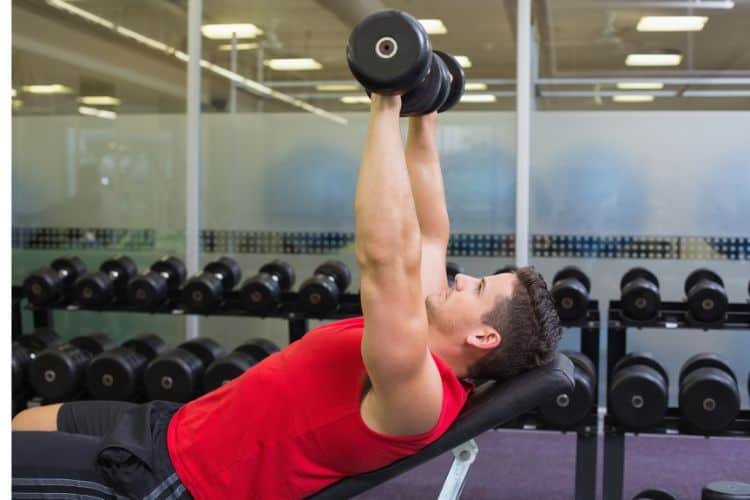

Strengthening your upper body isn’t just about getting a chiseled chest or bulging biceps—it’s about building functional power, improving posture, and enhancing overall athletic performance. Whether you’re training at home or in the gym, an effective upper body strength training routine will help you develop muscular endurance, power, and aesthetic physique.
In this guide, we’ll cover the best upper body strength training workouts, including detailed breakdowns of key exercises, training tips, and sample routines you can start today.
Upper Body Strength Training Workouts Build Muscle and Power
A well-developed upper body helps with more than just lifting heavy weights—it supports better movement mechanics, boosts daily productivity, and enhances your performance in sports and physical activities. Key benefits of upper body strength training include:
- Improved posture and spinal support
- Increased metabolism and fat burning
- Stronger bones and reduced injury risk
- Enhanced athletic ability
- Greater upper body symmetry and definition
By targeting the chest, back, shoulders, biceps, triceps, and core, you’ll create a balanced, resilient physique.
Muscles Targeted in Upper Body Strength Workouts
To get the most from your workouts, it’s essential to understand which muscles you’re training. Here’s a quick overview:
Chest
- Primary muscles: Pectoralis major and minor
- Key movements: Bench press, push-ups, dumbbell flyes
Back
- Primary muscles: Latissimus dorsi, trapezius, rhomboids, erector spinae
- Key movements: Rows, pull-ups, deadlifts
Shoulders
- Primary muscles: Deltoids (anterior, lateral, posterior)
- Key movements: Overhead presses, lateral raises, reverse flyes
Arms
- Biceps (front of the arm): Bicep curls, chin-ups
- Triceps (back of the arm): Triceps dips, extensions, pushdowns
Core
- Primary muscles: Rectus abdominis, obliques, transverse abdominis
- Key movements: Planks, hanging leg raises, Russian twists
Best Upper Body Strength Training Exercises
Let’s break down some of the most effective exercises for upper body strength, categorized by muscle group.
Chest Workouts
1. Barbell Bench Press
A compound movement that targets the chest, triceps, and shoulders. It’s a classic strength-builder.
How to do it:
Lie on a flat bench, grip the bar slightly wider than shoulder-width, and lower it to your chest. Push the bar back up explosively.
2. Dumbbell Chest Press
Offers a greater range of motion and helps eliminate muscle imbalances.
3. Push-Ups
A bodyweight staple that can be modified in dozens of ways—from wide grip to decline or weighted push-ups.
Back Workouts
1. Pull-Ups
Build upper back and bicep strength while enhancing grip.
Tip: If you’re a beginner, use resistance bands or an assisted pull-up machine.
2. Barbell Rows
An excellent compound movement to build thickness in your mid and upper back.
3. Lat Pulldowns
Perfect for isolating the lats and improving vertical pulling strength.
Shoulder Workouts
1. Overhead Press
This compound lift strengthens all three heads of the deltoids and engages your core.
Variation: Use dumbbells for unilateral training and better joint mobility.
2. Lateral Raises
Target the side delts for broader shoulders.
3. Face Pulls
Improve shoulder health and rear deltoid activation.
Bicep Workouts
1. Barbell Bicep Curls
One of the most effective biceps builders. Use a straight or EZ bar.
2. Hammer Curls
Target the brachialis and add arm thickness.
3. Concentration Curls
Isolate and squeeze the biceps for peak contraction.
Triceps Workouts
1. Triceps Dips
Use parallel bars or a bench. Dips hit all three triceps heads effectively.
2. Skull Crushers
Lying triceps extensions with a barbell or dumbbells to focus on isolation.
3. Triceps Pushdowns
Use a cable machine with a rope or straight bar for controlled contractions.
Core Workouts (Essential for Upper Body Stability)
1. Planks
Build core endurance and stability for compound lifts.
2. Hanging Leg Raises
Strengthen the lower abs and grip at the same time.
3. Cable Woodchoppers
Engage obliques and improve rotational strength.
Upper Body Strength Training Routine Samples
Here are a few routines for different experience levels. These workouts can be done 2–3 times per week, allowing for adequate rest between sessions.
Beginner Upper Body Strength Routine (Bodyweight & Dumbbell)
Warm-Up: Arm circles, shoulder rolls, jumping jacks – 5 minutes
- Push-Ups – 3 sets of 10–12
- Dumbbell Chest Press – 3 sets of 10
- Bent-Over Dumbbell Rows – 3 sets of 12
- Dumbbell Shoulder Press – 3 sets of 10
- Bicep Curls – 3 sets of 15
- Triceps Kickbacks – 3 sets of 12
- Plank – 3 rounds of 30 seconds
Cool-Down: Stretch arms, chest, back – 5–7 minutes
Intermediate Upper Body Gym Routine
Warm-Up: Light treadmill or rowing machine – 5 minutes
- Barbell Bench Press – 4 sets of 6–8
- Pull-Ups – 4 sets of max reps
- Barbell Overhead Press – 3 sets of 6–8
- Seated Cable Rows – 3 sets of 10
- Skull Crushers – 3 sets of 12
- Hammer Curls – 3 sets of 12
- Hanging Leg Raises – 3 sets of 15
Rest: 60–90 seconds between sets
Advanced Upper Body Power Routine
Split Style: Push-pull
Day 1 – Push (Chest, Shoulders, Triceps):
- Incline Barbell Press – 5×5
- Dumbbell Shoulder Press – 4×8
- Weighted Dips – 4×10
- Lateral Raises – 3×12
- Triceps Rope Pushdowns – 3×15
Day 2 – Pull (Back, Biceps):
- Weighted Pull-Ups – 5×5
- Barbell Rows – 4×6
- Lat Pulldown – 4×10
- Barbell Curls – 3×12
- Face Pulls – 3×15
Training Tips for Upper Body Success
To get the best results from your upper body workouts, consider these science-backed training tips:
1. Focus on Compound Movements
Compound lifts like bench presses and pull-ups engage multiple muscles, leading to better strength and hypertrophy gains.
2. Use Progressive Overload
Gradually increase the weight, reps, or intensity over time to keep challenging your muscles and promoting growth.
3. Don’t Skip Warm-Ups and Mobility
Warming up improves circulation and joint lubrication. Incorporate mobility drills to reduce injury risk.
4. Train Each Muscle Twice a Week
Studies show that training muscle groups at least twice per week leads to better strength and size gains than once-a-week training.
5. Rest and Recovery Matter
Muscles grow outside the gym. Get at least 7–9 hours of sleep and allow 48 hours between upper body sessions.
Common Mistakes to Avoid With Upper Body Strength Training
Even seasoned lifters make errors that can stall progress or lead to injury. Here are a few to watch out for:
- Neglecting back and rear delts
Many people overtrain chest and biceps, creating muscular imbalances. - Poor form on big lifts
This can stress joints and reduce effectiveness. Record yourself or work with a coach to fine-tune technique. - Skipping warm-up sets
Jumping into heavy sets cold increases injury risk. Do light warm-up sets first. - Overtraining arms with isolation
Focus on compound lifts first; save curls and triceps work for accessory finishers.
Equipment You Can Use For Upper Body Strength Training
While many exercises can be done with minimal equipment, these tools enhance your upper body workouts:
- Barbells and Dumbbells: Essential for scalable resistance
- Pull-Up Bar: Versatile for back and core
- Resistance Bands: Great for warm-ups or travel workouts
- Cable Machine: Allows for constant tension and angles
- Bench: For pressing, dips, and rows
- Kettlebells: Ideal for dynamic strength movements
Nutrition and Supplement Tips for Upper Body Strength Training Gains
You can train hard, but if your diet doesn’t support your goals, results will be slow. Focus on:
- Protein: Aim for 0.8–1g per pound of bodyweight daily
- Carbohydrates: Fuel for performance and recovery
- Fats: Essential for hormone health
- Hydration: Drink water throughout the day
Supplements (Optional):
- Whey protein for convenience
- Creatine monohydrate for strength and muscle volume
- Beta-Alanine for endurance
- BCAAs if training fasted
Upper body strength training is essential for a well-rounded fitness program. It improves your performance, posture, and physique. Whether you’re training with bodyweight, dumbbells, or barbells, consistency and smart programming are the keys to long-term success.
Use the workouts and tips in this guide to build your routine and progressively challenge your muscles. With dedication, you’ll see gains in strength, definition, and confidence.
Want more training guides and workout plans? Save this post and share it with your workout partner!





